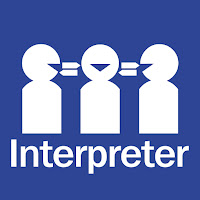Working in the communications
industry you quickly learn that neither you nor you client has the final word
on any decision, that’s up to the Legal Department. Shattered ideas or
impossible adjustments to documents frustrate people sometimes, but the Legal
Department has to do their job, and that is to prevent liabilities. The same
happens with communication’s cousin, entertainment. I sat down with Rafael E.
Silva Almeyda, Attorney at Law specializing in the entertainment field, to
discuss some major points anyone who wants to get in to the entertainment
industry must know.
The first
thing that came up from the conversation was the need for people, especially
artists, to sit down with a lawyer before they venture on with a business deal
or sign anything. Silva explains that a lot of problems artists and
personalities face come from binding themselves into contracts they didn’t even
read thoroughly. “If they expect to get
somewhere, they better start reading and getting an attorney to look at things
before signing anything”, commented Silva. He went on to suggest that if artist
or personality should get into some legal issue, he or she should never make
any statements for it could be used against them either in trial or public’s
perception.
Any
production, artist, event, etc., should be treated as the business they are and
Silva makes a point that an attorney should be there from the very beginning.
“That’s when trouble starts…everyone thinks they know what they’re doing when
in reality they don’t know the first thing about contractual obligations.” One
of the biggest cases he has worked on was on a defamation case made against a
TV personality in Puerto Rico. He was on the defendant’s team and they managed
to win that case. He went on to explain that, “law is mostly interpretation. You
find yourself a good interpreter and you got yourself a tremendous lawyer.”
What he meant by that is that there are tough situations to deal with in the
entertainment industry, but we may not necessarily be the best to handle any or
every situation. It’s not what you know; it’s whom you know.
The more he told me about how he
does work with his clients the more I thought it was the same process at a
communications agency. Every single item that either comes in or out has to be
approved by a legal council. It does take extra time out of the deadline but it
serves the purpose. Negotiating deals with fees and ownerships can be confusing
for someone who is not fluent in legal lingo, but the best recommendation is
for the artist or executive to simply write down what do they expect from the
deal and give it to the legal council. In turn he or she will revise that the
contract has these specifications and also raise flags with what he or she
thinks may be issues in the contract. “The best advice I could give to someone
entering the entertainment industry is to not sign anything before an attorney
sees it.”, concluded Silva.





No hay comentarios:
Publicar un comentario